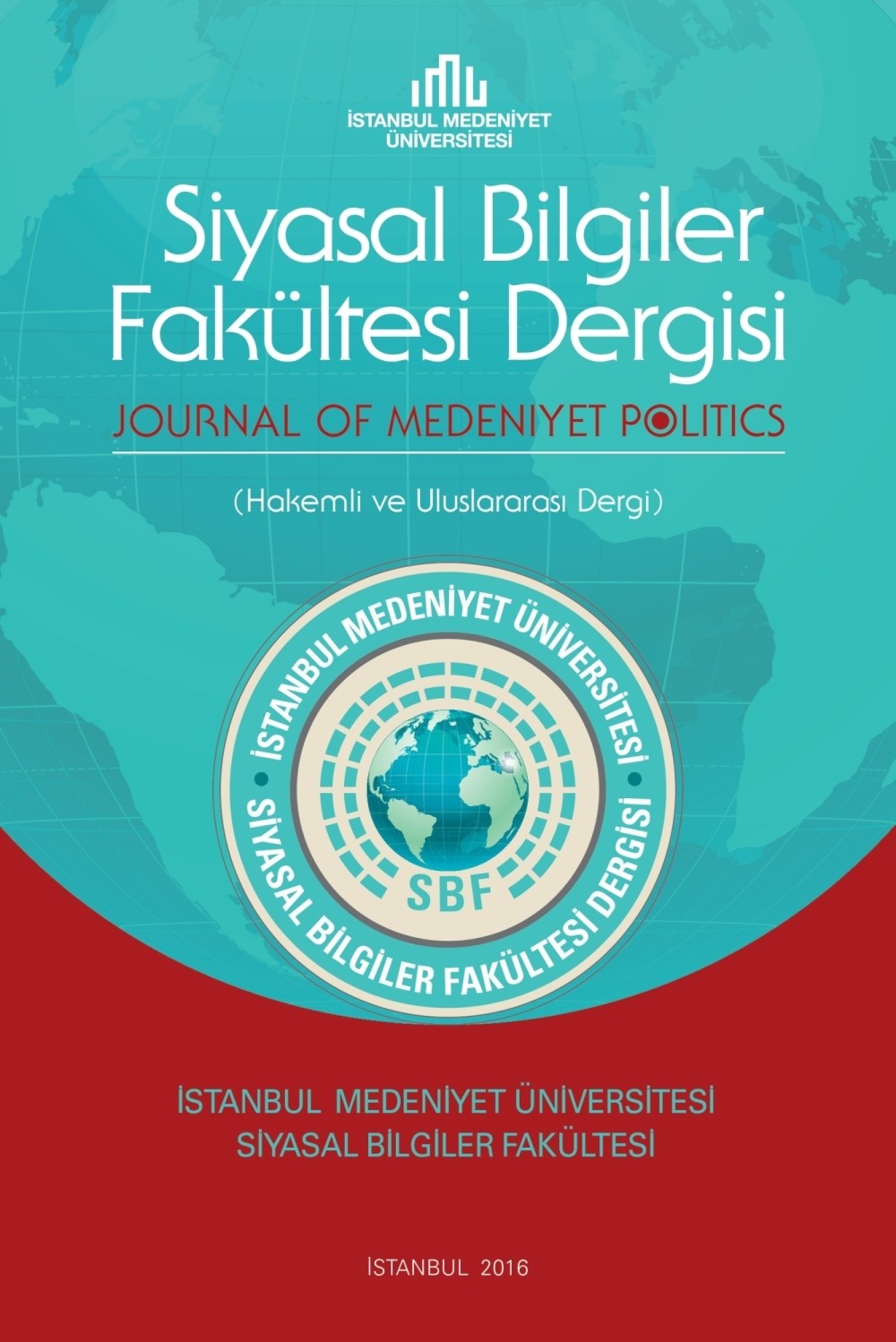11 Eylül Saldırılarından Sonra New York Times Gazetesinde Kullanılan Terör Odaklı Oryantalist Söylem Dili
İnsanlar arasındaki temel iletişim aracı olan dil, toplumları yönlendiren ve bir ülkenin
vatandaşlarını veya dünya insanlarını etkileyen siyasi bir propaganda aracına dönüşebilen
bir olgudur. Bu bağlamda dil ve iktidar arasındaki bu ilişki, toplumsal ve siyasal yaşamın
çeşitli noktalarında kendini açıkça gösterebilmektedir. Özellikle medya dünyasında, çeşitli
vakalara göre kullanılan dilin değiştiği, medya organlarının belirli olayları okuyucuyla
buluştururken farklı düşünce yapılarını desteklediği ve bunları benimsemeye hizmet
eden bir yayıncılık anlayışını sürdürdüğü görülmektedir. Bu yönlendirici üslup tavrı, New
York Times gazetesinin 11 Eylül sonrası haber metinlerinde gözlemlenmekte ve 11 Eylül
saldırılarının ardından 7 Ekim’de Afganistan’a askeri müdahaleye başlayan Amerika’nın bu
politikası, bu gazetedeki bazı açıklamalara göre, sade bir terör olayı olarak ele alınmamakta,
hatta oryantalist bir söylem dili aracılığıyla meşrulaştırılmaktadır. Bu çalışmada öncelikle
siyaset ve dil ilişkisi ele alınacak, ardından oryantalist söylemin biçimleri ve New York
Times’taki muadili, incelenen haberler ekseninde tartışılacaktır.
Anahtar Kelimeler:
Oryantalizm, Söylem, 11 Eylül Saldırıları, Basın, New York Times
The Orientalist Discourse Language Used in The New York Times Newspaper After The September 11 Attacks
Language, which is the main communication tool between people, is a phenomenon that
can turn into a political propaganda instrument that directs societies and affects the citizens
of a country or the people of the world. In this context, this relationship between
language and power can manifest itself clearly at various points in social and political life.
Especially in the media world, according to various cases, it is seen that the language used
has changed, while media organs meet certain events with the reader, they support different
thinking structures and maintain an understanding of publishing that serves to adopt
them. This directive style attitude can be observed in the news texts of the New York Times
newspaper after 9/11 and the policy of America, which initiated a military intervention in
Afghanistan on October 7 following the September 11 attacks, is legitimized not only through
an act of terrorism, but also through Islam and orientalism, in accordance with some
statements in this newspaper. In this study, firstly, the relationship between politics and
language will be addressed, and then the forms of orientalist discourse and its equivalent in
the New York Times on the axis of the analyzed news will be discussed.
Keywords:
Orientalism, Discourse, The September 11 Attacks, Press, The New York Times,
___
- BBC News, (03.09.21). Afghanistan crisis: How Europe’s relationship with Joe Biden turned sour, https://www.bbc.com/turkce/haberler-dunya-58437578, accessed on 09.04.22.
- Ataman, M. and Gökcan, Ö. (2012). The U.S. Foreign Policy of the Bush Era: An Attempt for Over-Expansion, Journal of Academic Inquiries, Sakarya: University of Sakarya, Institute of Social Sciences, 7, N. 2, 199-229.
- Baylis, J., Smith, S., Owens, P. (2014). The Globalization of World Politics, 6. ed., Oxford: Oxford University Press.
- Çağlar, Ş. (2010). Media Analysis Methods (Medya Analiz Yöntemleri), Istanbul: University of Istanbul, Open and Distance Education Faculty Publications.
- Deane, C. and Fears, D., (03.09.2006). Negative Perception Of Islam Increasing Poll Numbers in U.S. Higher Than in 2001, The Washington Post, https://www.washingtonpost.com/archive/politics/2006/03/09/negative-perception-of-islam-increasing-spanclassbankheadpoll-numbers-in-us-higher-than-in-2001span/83e140eb-edb2-40ec-b9ffccadf42e3c79/, accessed on 04.08.21.
- Habertürk, (8.01.22). Future Ideas-How Will Migrations Change The World? (Gelecek Fikirler-Göçler Dünyayı Nasıl Değiştirecek?, https://tv.haberturk.com/tv/programlar/video/gelecek-fikirler-28-ocak-2022-gocler-dunyayi-nasil-degistirecek/753134, accessed on 09.04.2022.
- Griffiths, M., O’Callaghan, T., Roach, S. (2008). International Relations The Key Concepts, 2. ed., New York: Routledge.
- Güngör, F. S. (2011). Orientalism and the Reflections of the United States’ Perspective on the Middle East on Cinema, Unpublished Doctorate Thesis, Ankara: Hacettepe University Institute of Social Sciences.
- Huntington, S. P. (2015). The Clash of Civilizations and The Remaking of World Order (Medeniyetler Çatışması ve Dünya Düzeninin Yeniden Kurulması), Translate: Mehmet Turhan, Cem Soydemir, 14. ed., Istanbul: Okuyan Us.
- Kahraman, H. B. (2002). İçselleştirilmiş, Açık ve Gizli Oryantalizm ve Kemalizm (Internalized, Open and Hidden Orientalism and Kemalism), Doğu Batı, Oryantalizm I, 20, Ankara: Doğu Batı Publishing: 153-178.
- Kantarcı, Ş. (2012). The Structure of Post Cold War International System: Is The Name of The New Era “Period of Coalitions, Journal of Security Strategies, Istanbul: Turkish National Defence University, Atatürk Institute of Strategic Studies, Vol. 8, No: 16, 47-85.
- Kessler, G. (13.12.2016). The Pre-War Intelligence on Iraq: Wrong or Hyped By the Bush White House?, The Washington Post, https://www.washingtonpost.com/news/fact-checker/wp/2016/12/13/the-pre-war-intelligence-on-iraq-wrong-or-hyped-by-the-bush-whitehouse/, accessed on 04.08.21.
- Khatib, L. (2006). Filming the Modern Middle East: Politics in the Cinemas of Hollywood and The Arab World, New York: I. B. Tauris.
- Kömeçoğlu, U. (2007). The Echo of Orientalism or Orientalism That Reverberates, International Orientalism Symposium, Istanbul: IMM Directorate of Culture Publications: 131-156.
- Kula, O. B. (2011). Batı Edebiyatında Oryantalizm-I (Orientalism in Western Literature-I), Istanbul: Türkiye İş Bank Culture Publishings.
- Lean, N. (2015). İslamofobi Endüstrisi (Islamofobia Industry), 2. ed., Ankara: DIB Press.
- Mearsheimer, J. J. and Walt, S. M. (2003). An Unnecessary War, Foreign Policy, 134 (Jan/Feb): Washington: 50-59.
- Said, E. (1998). Oryantalizm (Orientalism), Istanbul: Irfan Publishing, Translated by Nezih Uzel, 4. ed.
- Turner, B. S. (2002). Oryantalizm, Postmodernizm, Globalizm (Orientalism, Postmodernism, Globalism), Istanbul: Anka Publishings, Translated by İbrahim Kapaklıkaya.
- Anadolu Agency, (15.04.2021). Uncertainty prevails after the US decision to withdraw from Afghanistan (ABD'nin Afganistan'dan Çekilme Kararı Sonrası Belirsizlik Hakim), https://www.aa.com.tr/tr/dunya/abdnin-afganistandan-cekilme-karari-sonrasi-belirsizlikhakim/2209973, accessed on 09.04.22.
- Başlangıç: 2016
- Yayıncı: İstanbul Medeniyet Üniversitesi
